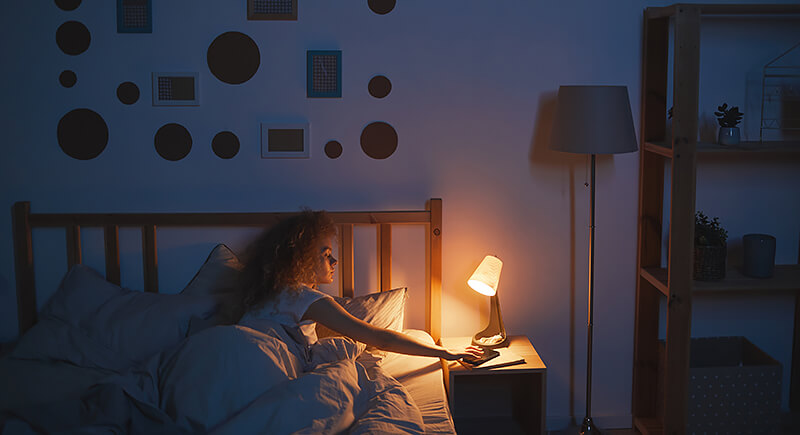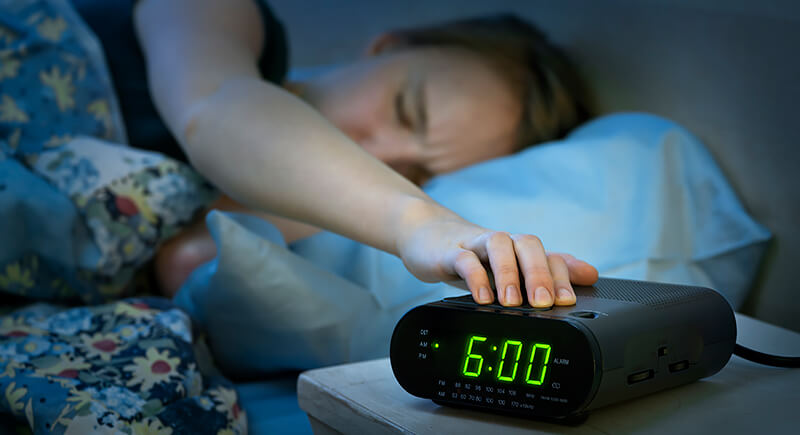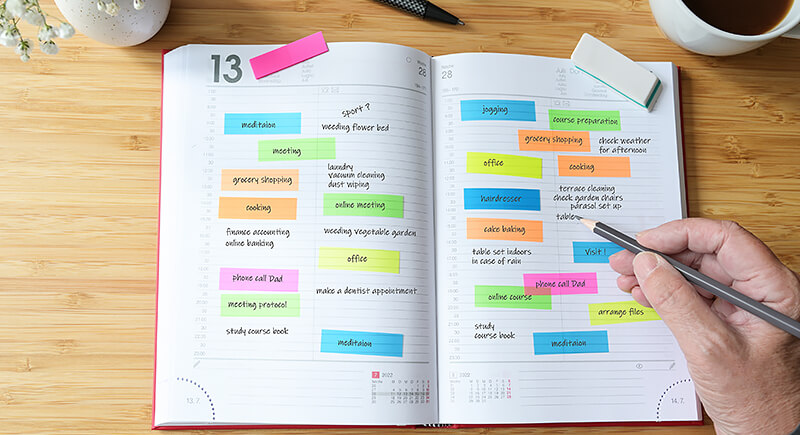The 11 Best Ways to Keep Going After a Sleepless Night
A long night without sleep can make the next day feel impossible, but you can still get through it with practical steps. Researchers have studied the effects of short‑term sleep loss for decades, and certain habits consistently help people function. These methods do not replace rest, but they give you enough focus and energy to handle necessary tasks until you can recover.
Eat Meals That Support Balanced Energy

Credit: iStockphoto
Your brain reacts differently to food when you have missed sleep. A showed people tend to choose high-calorie snacks when deprived of rest. Those choices give quick satisfaction but make blood sugar levels crash later. Balanced meals with protein, grains, and vegetables release energy slowly, which prevents you from swinging between alertness and exhaustion.
Do Not Drive If Your Focus Drops

Credit: iStockphoto
Driving when you feel sleepy greatly increases the chance of serious mistakes on the road. Reaction times slow, attention fades, and even brief moments of nodding off can lead to collisions. Many crashes happen because drivers try to push through exhaustion instead of stopping.
Use Caffeine with Clear Limits

Credit: iStockphoto
Caffeine can sharpen reaction time and keep you attentive when fatigue is high. The FDA reports that up to 400 milligrams daily is safe for most adults, which equals about four cups of coffee. Drinking beyond that amount usually gives rise to anxiety, tremors, or trouble resting later.
Get Outside for Light and Movement

Credit: iStockphoto
Walking outside soon after waking up allows your body to recover from a restless night. The daylight signals your system to stop producing melatonin, which makes you feel more awake. Each step increases circulation and brings more oxygen to your brain, sharpening focus and lifting mood.
Stick with Your Regular Sleep and Wake Times

Credit: iStockphoto
It may seem helpful to sleep several extra hours after a rough night, but that habit confuses your internal clock. Maintaining the same bedtime and wake time makes sure that your body rebuilds its rhythm quickly. Not opting for this routine often leads to additional nights of restlessness and late mornings.
Reduce Your Task Load For the Day

Credit: iStockphoto
When tired, your brain needs extra effort to process information. A heavy workload can overwhelm you and increase mistakes. If you try to push through everything, you risk errors that will take even more time later.
Drink Water at Regular Intervals

Credit: iStockphoto
Skipping regular water intake after a sleepless night makes the day feel heavier than it needs to be. Dehydration slows circulation, which can cause headaches, dry eyes, and sluggish thinking. Fatigue deepens when your body lacks enough fluid for systems to work efficiently. Tasks that normally feel simple can take longer and feel harder to finish.
Take a Short Nap Early in the Day

Credit: iStockphoto
A 1996 study found that short naps after limited rest improved performance and mood. However, naps longer than thirty minutes tend to ensure a deep slumber, which causes grogginess when interrupted. Taking a brief rest early in the afternoon is effective, but missing it when you are struggling to concentrate can leave you distracted and slow for the rest of the day.
Plan Lighter Meals in the Evening

Credit: iStockphoto
Have a lighter meal several hours before you plan to sleep and choose options like vegetables, lean proteins, and simple grains. These foods digest smoothly and allow your body to slow down as night approaches. Meanwhile, a heavy or late dinner keeps your digestion active when it should be winding down.
Limit Screen Exposure Before Bedtime

Credit: iStockphoto
If you read by a dim lamp or use other soft lighting before bed, your body begins to release melatonin as it should. This natural shift makes it easier to feel drowsy and settle into rest without effort. On the other hand, bright screens interrupt this process by telling your brain to stay alert.
Move Frequently Instead of Sitting for Hours

Credit: iStockphoto
Long stretches of sitting can make sleepiness worse. Stand up every hour to walk or stretch, and your circulation will improve. A simple routine like touching your toes or pacing the room keeps blood moving and sharpens your mind. Remaining still for hours adds to feelings of stiffness and dullness and makes each task harder to complete.
Skip The Snooze Button on Waking

Credit: iStockphoto
We are all tempted to press snooze when the alarm goes off after a rough night and hope for just a few more minutes. However, it ends up being fragmented sleep that leaves you feeling groggy. A better approach is to set your alarm for the latest time you truly need, then get out of bed right away.
Build a Calm Routine Before Bed

Credit: iStockphoto
Lowering lights, putting away tasks, and doing simple activities like stretching or reading tells your system to slow down. But if you choose to ignore this step, you will lie awake and stare at the ceiling for hours.
Stay Organized with Simple Notes or Lists

Credit: iStockphoto
Writing tasks and reminders in a notebook or on your phone lightens the mental load when you feel drained. A clear list gives structure to your day and reduces the chance of forgetting important steps. Seeing everything laid out can also help you prioritize without overthinking.
Laugh or Smile

Credit: iStockphoto
Those who find time to laugh during a draining day often notice a real change in how they feel. Laughter sparks endorphins that naturally ease stress and create a lighter mood. According to research, short bursts of humor can sharpen focus and reduce the sense of fatigue.